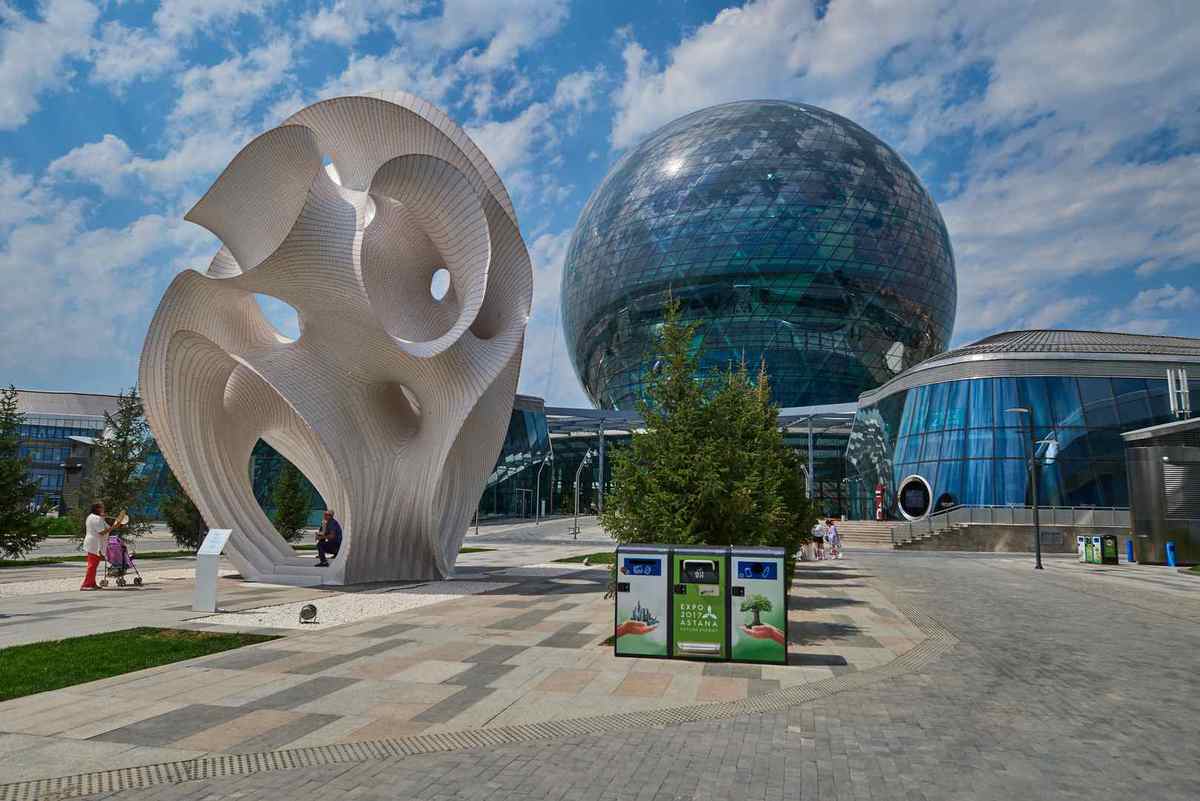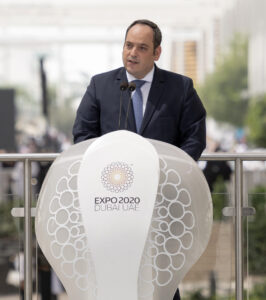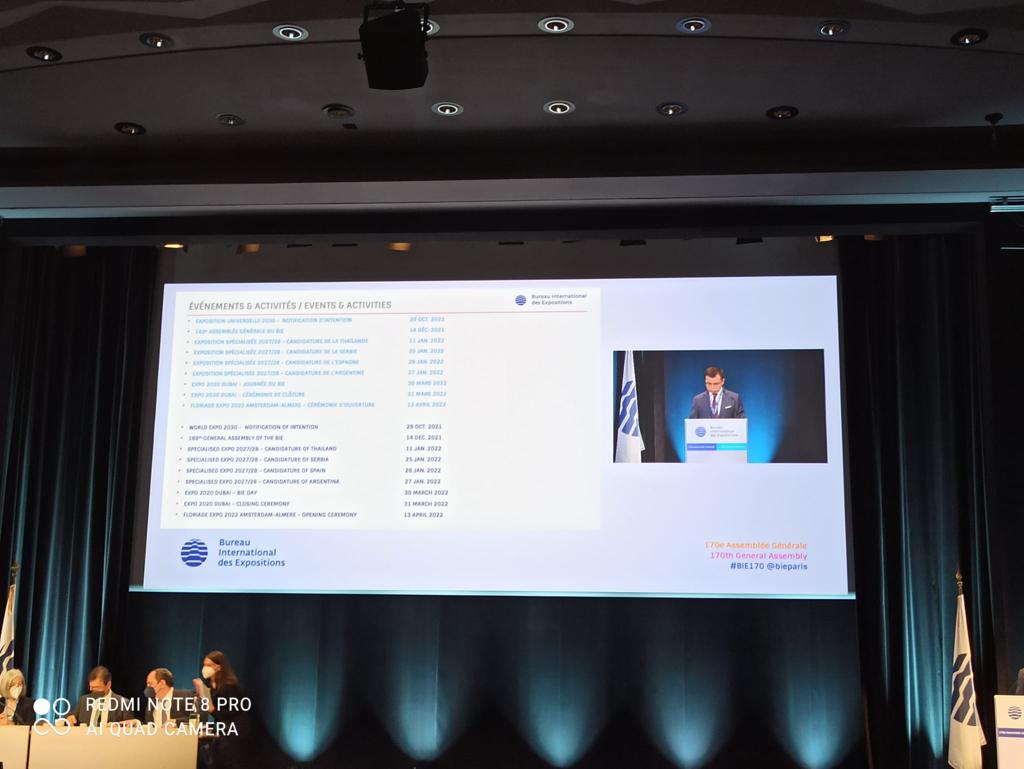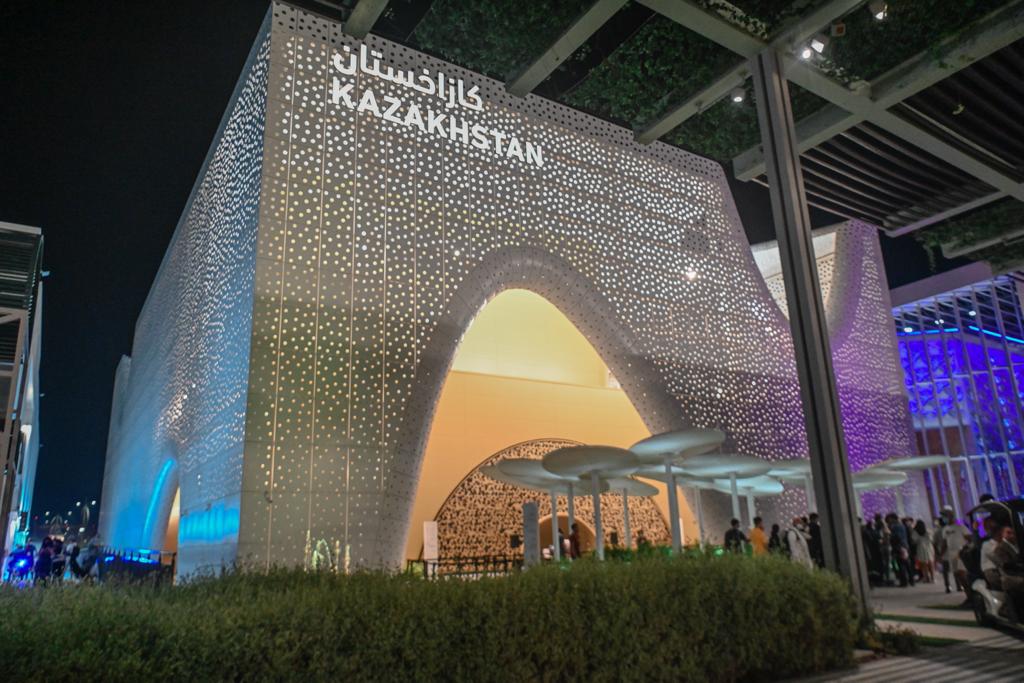ASTANA – As the countries bidding for hosting the Specialized Exhibition 2027/28 anticipate the decision, Dimitri S. Kerkentzes, the Secretary General of the Bureau International des Expositions (BIE), sat down with The Astana Times to talk about Expo 2017 Astana’s legacy and the organization’s activities as a whole.

The main area of Expo Astana 2017. Photo credit: QazExpoCongress company’s press service
The international exposition that took place in the Kazakh capital from June 10 to Sept. 10, 2017, was held under the Future Energy theme. Kazakhstan joined the BIE in 1997.
Expo 2017 Astana has made its place in the history of Expos by positively contributing to the development of the specialized Expo concept and demonstrating the transformative role of these events, according to Kerkentzes.
“By drawing attention to the timely theme, inviting more than 135 international participants, and lifting visa restrictions for visitors, Kazakhstan showed that only 25 years after gaining independence, it was ready to welcome the world. Moreover, it highlighted the relevance of having a precise theme around which countries, companies, non-government actors, and individuals can coalesce to discuss and make real progress,” said Kerkentzes.

Dimitri Kerkentzes.
The Secretariat of the BIE, which provides expertise and technical support to its 170 Member States in promoting international exhibitions, was established in 1928. The intergovernmental organization oversees and supervises the organization of four types of international exhibitions: World Expos, Specialized Expos, Horticultural Expos, and the Triennale di Milano. The Secretariat of the BIE has its headquarters in Paris.
“As a neutral party, the secretariat provides a point of contact for expo organizers, participants, and candidates and aims to maximize coordination between these parties,” Kerkentzes explained the organization’s role. “The BIE’s policies, rules, and activities are governed by the General Assembly, the organization’s main decision-making body composed of all its member states.”
Four BIE committees include the Executive Committee, the Rules Committee, the Administration and Budget Committee, and the Information and Communication Committee.
The committees are composed of representatives of between nine and 12 BIE member states recommending actions and proposing policies in the functional areas they cover. In addition, Kazakhstan now chairs the Information and Communication Committee, which reviews Expo organizers’ communications and marketing strategies, monitors the BIE and Expos’s visual identity and media coverage, and provides counsel in developing the Expo’s plans, goals, and programs.

The 171st session of the General Assembly of the BIE was held on Nov. 28. Photo credit: the BIE website.
Five countries are now in the running to organize the Specialized Expo 2027-2028: the United States of America (for Minnesota), Thailand (for Phuket), Serbia (for Belgrade), Spain (for Malaga), and Argentina (for Bariloche).
The strong interest in organizing the next Specialized Expo and the nature of the proposed themes attest to a strong appetite for global cooperation, noted Kerkentzes. The organization of the Specialized Expo has a “unique opportunity to gather the best and brightest ideas from around the world to address current challenges triggered by the pandemic”.
Kerkentzes also highlighted the role of Kazakhstan in the activities of BIE.
“Kazakhstan is a reliable participant in Expos, which translates into its involvement in the BIE, where its delegates have always been highly engaged. With its determined focus on multilateralism and development through cooperation, Kazakhstan’s world vision came to prominence with its successful project to organize Specialized Expo 2017. As the first Expo to take place in Central Asia, Expo 2017 opened doors to new opportunities in the region. It brought new ideas and solutions from around the world to Kazakhstan,” he said.

The 170th session of the General Assembly of the BIE.
Expo 2017 Astana inspired future Expo organizers and candidates with a well-designed site and high-quality content. The strong interest in organizing the next Specialized Expo is “a testament to the overwhelmingly positive feedback on Expo 2017.”
The Expo site in Astana now serves as a cultural, scientific, and business center. In addition, the area is a fully-integrated neighborhood of the capital, offering an example of how to plan the urban legacy of an Expo site.

Kazakhstan’s pavilion at EXPO Dubai. Photo credit: QazExpoCongress company’s press service.
“Having overseen the whole Expo process from candidature to legacy, Kazakhstan has developed significant knowledge and experience, giving it remarkable insights that I am certain would be extremely useful to any country willing to host an Expo,” noted Kerkentzes.
One of the main objectives of Expos is to respond to new trends and challenges. In this regard, energy mix and sustainable energy production and use have been key focuses of Expos in recent years.
Kerkentzes believes that Expos serve to anticipate these changes and provide humanity with the opportunity to test new solutions.
“Expos serve as sounding boards for new policies, laboratories for innovative ideas, and forums for exploring future societies. The challenges facing humanity, whether in relation to energy supplies, climate change or inclusive growth, are all subjects that have been explored in depth at recent Expos, and I am certain, will be in future Expos too. When problems are universal and faced by all countries, there is no other option than to foster global exchange and to share solutions in a common endeavor, with a view to not only anticipating future problems, but actively resolving them,” he said.

